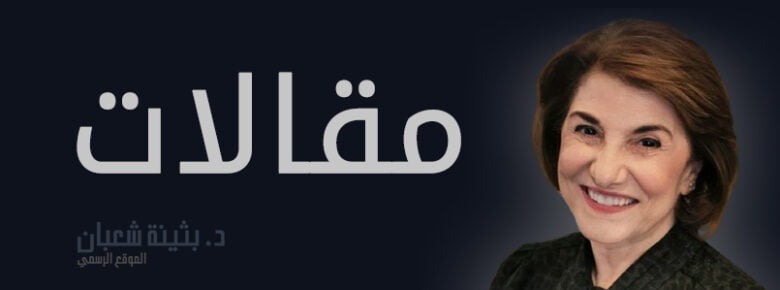
What is more severe than the unilateral, coercive, illegal, and unlawful measures imposed on Syria and its people, is to listen to the Permanent Representative of the United States in the Security Council, Linda Thomas-Greenfield, talking about the humanitarian situation in Syria and its repercussions on international peace and security, especially since she narrows down Syria to the areas controlled by terrorists supported by the United States.
I do not know Greenfield’s perception, but she certainly knows that the main reason behind the problem in Syria lies in the Zionist-American plans, which enabled thousands of terrorists to enter Syria. When the mission failed, the US brought its own forces to sustain them, and plundered Syrians’ resources. They looted oil and imposed their draconian laws on millions of Syrian civilians.
Likewise, three members of the Congress described as “lawmakers” who infiltrated the northwest of Syria for half an hour and then withdrew out of fear of being targeted, are undoubtedly fully aware that their actions are illegal, shameful, and dangerous. How can a state that completely contradicts what it claims believe itself capable of providing a leadership model to the world? Congressmen French Hill, Ben Cline, and Scott Fitzgerald infiltrated Syrian territory, just like thieves, smugglers, or terrorists, through the Bab al-Salamah border crossing that is kept open under the pretext of delivering humanitarian aid. Through their visit, they reaffirmed their support for terrorism, which jeopardizes the security and the safety of millions of innocent civilians in Syria.
Such blatant contradictions between words and actions in US politics are not limited to Syria but also apply to the entire world. These contradictions have ignited rebellion movements against the West throughout Africa, and pushed countries seeking alternatives to strive against the aggressive Western colonial system, which grants itself the right to meddle in the affairs of nations, underestimate their intellectual and material capacities, and exploit their national wealth and natural resources. It is no exaggeration to say that what we are witnessing today on the international scene represents an unprecedented awakening among most peoples of the world regarding the true nature of oppressive Western systems, the reality behind their false slogans, and the fundamental goals they seek, which include the plunder of wealth, subjugation of wills, and the perpetuation of a disguised, more insidious form of colonialism than the old direct colonialism.
After the Nigerien coup, studies were published discussing the importance of training programs provided by the United States to militias from African countries. These programs focused primarily on adopting “liberal” values, which often meant allegiance to values of oppression, exploitation, and subservience rather than promoting democratic values. These programs have also led to the rise of liberal, opportunistic, and corrupt military elites in many African nations. Therefore, these coups occurring in West Africa and spreading to other countries are toppling liberal human assets that the United States has trained, nurtured, and brought to power, implicating them in corruption and foreign intelligence servitude. This is nothing but evidence of the growing awareness among people of the reality they are experiencing and the role of the West in the dire poverty they find themselves in, despite their abundant resources.
In a joint research paper by two American writers: Patrick Quirk, Ph.D. and Caitlin Dearing Scott entitled “Winning the Influence War Against China,” the authors revealed what they believe to be the key reason and purpose of the American aid anywhere and in any field in the world. They argue that the United States provides the so-called “aid” directly to military forces, including wages and training programs. The researchers argue that the military power of the “free world,” as they refer to themselves, is important but not sufficient.
They claim that the Chinese Communist Party uses economic incentives and intellectual elites to expand China’s influence globally, aiming to become an alternative to the United States as a global power. This shift undoubtedly challenges American colonial interests. Therefore, the researchers, who serve their colonial systems, argue that there must be a clear strategy and an active campaign to encourage countries to resist Chinese influence.
Indeed, the United States began using the concept of “aid” after World War II, since the Marshall Plan in Germany, in order to provide extensive assistance to Japan and Korea and prevent them from falling under the influence of the Soviet Union. During the Cold War, American aid was indeed a significant part of its containment strategy, and this aid had a substantial impact on advancing US interests. As part of these efforts, USAID was established in 1961, and the congressionally funded National Endowment for Democracy in 1983.
The research does indeed indicate that this aid helped promote US interests in recipient countries. It also created new opportunities and markets for American business and trade. In fact, eleven of the United States’ top trading partners were countries that received American aid. Indeed, American aid has often been used to cultivate allies, partners, and reliable clients for the sake of the United States and its liberal system. Between 2012 and 2022, eight countries were able to reverse their political trajectories and return to the American sphere of influence due to US support.
Given the successful outcomes from the American perspective in such cases, researchers advocate for “increasing aid to strategically important countries in competition with China and Russia,” which means that aid should prioritize competition with China as the primary objective, regardless of the income levels or the countries most in need of assistance. From this perspective, aid should be closely linked to the objectives of US foreign policy and American interests, and these aid efforts should concur with the security and reform programs, similar to what the United States has done in Western Europe, Colombia, South Korea, and Chile. Furthermore, the United States should promote “democracy” as a primary goal in its development policies. The researchers add that the competition for global influence isn’t limited to the Pacific Ocean but extends to parliaments, local councils, executive offices, political parties, unions, and, of course, military forces.
Doesn’t this disclosure unveil a clear mechanism for influencing societies, not only through senior politicians but also through local officials, officers, parliaments, and municipalities, but through anyone who can be drawn into promoting liberal thought and Western values, effectively serving the American agenda and its interests? This study does suggest that American aid, regardless of its claimed purpose and the frame it operates within, is a tool for expanding American influence, interests, and business as well as securing allegiance to American dominance against the will and interests of the people they claim to assist.
From this perspective, American aid today, including covert and illegitimate financial support, can indeed contribute to destabilizing countries, impeding their development, and facilitating resource exploitation.
Fortunately, most people of Africa, Asia, and Latin America are aware today of this fact, and we hope that one day, American aid won’t find anyone willing to accept it, and institutions they have bestowed with democratic names won’t find any recipient, as people already understand that the price for this aid is subjugation, humiliating subservience to the will and interests of the United States rather than serving the interests of those they claim to help.

